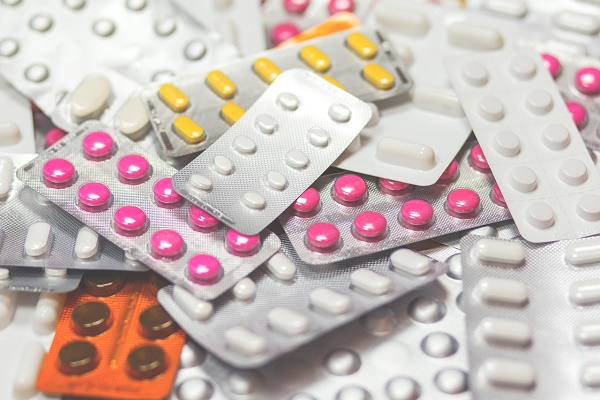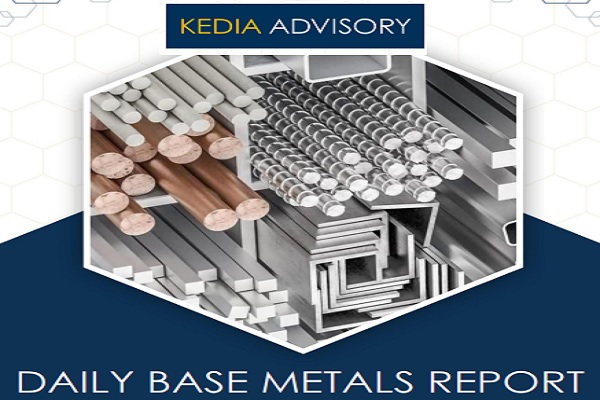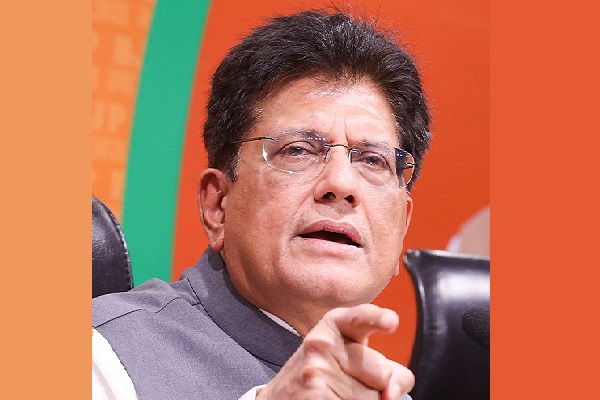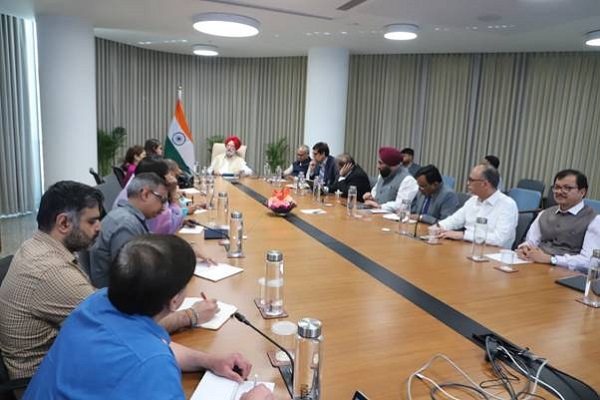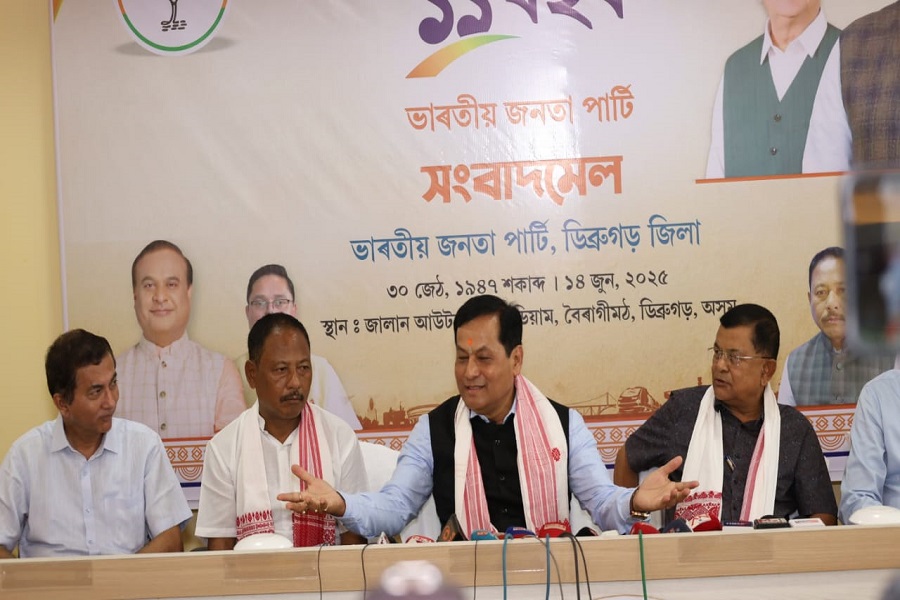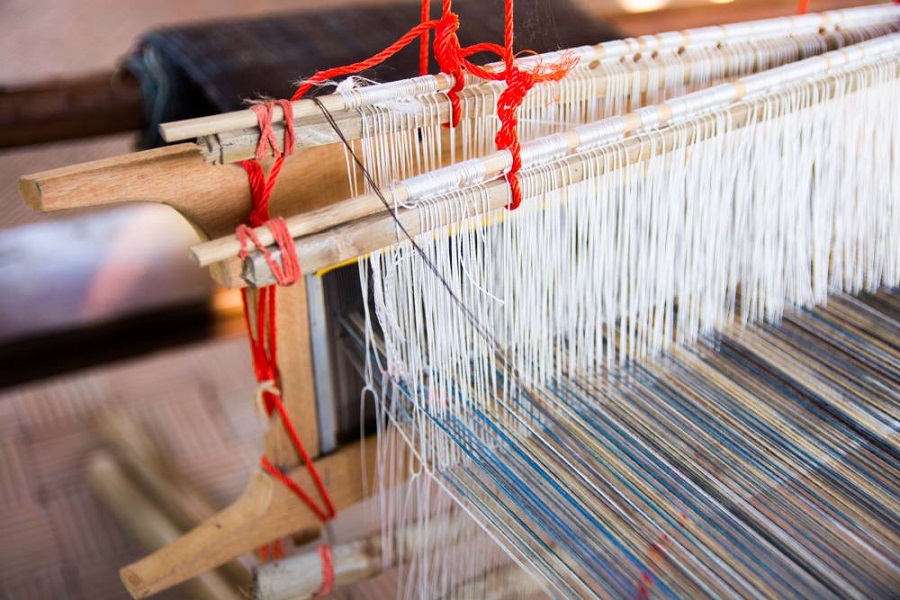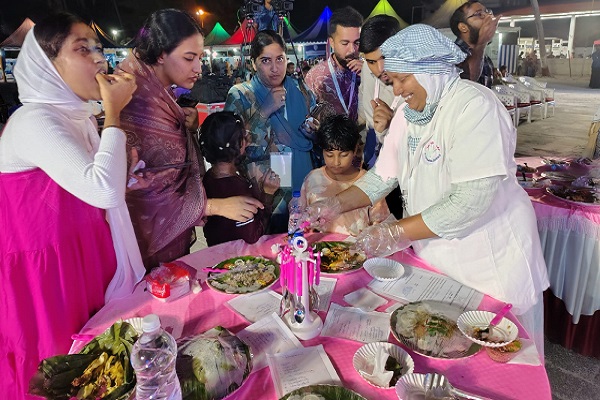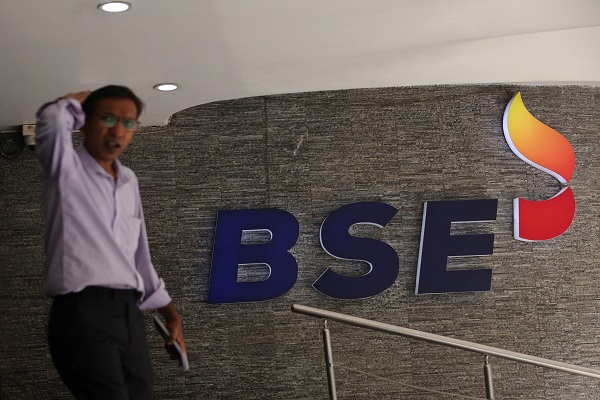Manas Polymers and Energies coming with IPO to raise Rs 23.52 crore

Manas Polymers and Energies
- Manas Polymers and Energies is coming out with an initial public offering (IPO) of 29,04,000 equity shares in a price band of Rs 76-81 per equity share.
- The issue will open on September 26, 2025 and will close on September 30, 2025.
- The shares will be listed on SME Platform of NSE.
- The face value of the share is Rs 10 and is priced 7.60 times of its face value on the lower side and 8.10 times on the higher side.
- Book running lead manager to the issue is Expert Global Consultants.
- Compliance Officer for the issue is Ankita Chopra.
Profile of the company
The company is primarily engaged in the business of manufacturing and supply of premium food-grade PET preforms and PET bottles, jars and closure caps. It sells its products i.e. PET preforms and PET bottles, jars and closure caps to the PET (plastics) industry. It is also engaged in the renewable energy.
The company is engaged into renewable power generation and distribution business and operates as renewable energy producer in Madhya Pradesh. Over the years, the company has developed, operated and maintained utility scale solar power projects and generate revenue through sale of electricity to various off-takers including private corporations, state government-backed entities and to the state’s power grid for balance of units generated (if any). Currently, its solar power project (which started as a pilot plant) has a capacity of 1.00 MW at a single location. Further, for expanding the portfolio, it has identified the land wherein it intends to set-up another solar power project having capacity of 5 MW in Shajapur, Madhya Pradesh.
Late Anju Bhadauria (erstwhile Promoter) has started the business in the year 2017 as a proprietorship concern, which was later acquired through the Business Transfer Agreement dated January 25, 2024 by the company. It manufactures and supplies premium food-grade PET preforms, PET bottles, jars and closure caps to the PET (plastics) industry. Its manufacturing facility having an area admeasuring 1533.45 sq. ft. is situated at Plot No. 3, Baraghata, Industrial Area, Jhansi, Road, Lashkar, Gwalior, Gird, Madhya Pradesh, India. In addition to its manufacturing operations, the company is also engaged in the trading of PET preforms and closure caps. of these 2 products, the company does manufacturing and trading of the PET Preforms and does only trading in the closure caps to supply different grades of caps as required by the customer.
Proceed is being used for:
- Funding of capital expenditure requirements towards setting up of Solar Power Plant
- Funding of capital expenditure requirements towards purchase of Fixed Assets
- General corporate purposes
Industry Overview
India's plastic industry has gone from strength to strength. The timeline of Indian polymer production can be summed up as follow1957- Polystyrene, 1959 - LDPE, 1961 - PVC, 1968 - HDPE and 1978 - Polypropylene. Currently the Indian plastic processing industry comprises approximately 30,000 units that use injection molding, blow molding, extrusion, and calendaring to create a wide range of products. Plastic material is becoming increasingly important across various industries, and per capita consumption is rising quickly. Traditional materials are being quickly replaced by plastic technology, processing equipment, expertise, and cost-effective manufacturing. The ability to serve international markets results from the skills developed in most of this industry's areas combined with inherent abilities. The Indian plastics industry has advanced significantly over the past few decades, becoming one of the nation's most significant sectors with a considerable base.
India's plastic industry will play a significant role as India sprints towards becoming a global manufacturing hub. Currently, with a renewed focus towards preserving the environment, numerous industries are modifying their plastic to make it more environmentally friendly. This is a complicated task, as there are multiple distinct plastic grades, and each one requires a separate recycling procedure; some forms of weak plastic cannot be recycled in a way that is profitable for business. In order to handle this, corporations are engaging in a variety of CSR initiatives by allocating funds and resources to solve these problems, and protect the environment from plastic waste pollution. The goal is to utilise plastic as effectively as possible without affecting or endangering the nature around us. According to India Plastics Pact’s (IPP) Roadmap to 2030, the target is to eliminate all unnecessary plastic waste and items, and make 100% of plastic packaging reusable, recyclable or compostable by the year 2030.
Meanwhile, India is leading the renewable energy revolution, with a strategic emphasis on solar power to meet its growing electricity needs. The 14th National Electricity Plan (NEP14), introduced in May 2023, aims to double the country's electricity generation capacity by 2032, with solar energy poised to play a pivotal role. This blog provides an insightful overview of India's energy landscape, highlighting the significant growth of the solar sector, underscored by government initiatives and the potential for future development. It outlines solar energy's environmental and economic benefits, the government's strategies to boost solar adoption, and the anticipated impact on the global clean energy market. Going forward, India is well positioned to execute its plans to leverage solar power to meet a substantial portion of its energy needs by 2032, backed by government initiatives and investment in technology.
Pros and strengths
Scalable business model: The company’s business is dependent on the orders placed by its clients and comprises of optimal utilization of its in-house processing facilities and achieving consequent economies of scale. This business model has been successful and scalable for it in the last few financial years. The expansion of its business is basically due to the potential development and possibilities of new markets both domestic and international, by adopting aggressive marketing strategy of the product, innovation in the product range and by maintaining the consistent quality and keeping up the trust of its clients.
Existing relationship with suppliers: The company has established and maintained enduring relationships with its suppliers. It buys raw materials like low-density polyethylene, high-density polyethylene, and low-density polyethylene in bulk from reputable vendors in order to manufacture its products. It feels that its strong ties with suppliers will enable it to continue to build its business. The company receives timely and high-quality supplies of its raw materials because of its partnerships with its suppliers, which makes it possible for it to control its inventory and provide its clients with high-quality products in a timely manner, resulting into repeat business from such clients.
Consistency in quality: The company is committed towards quality of its products. The company’s determination towards quality is demonstrated by well-defined quality and safety procedures at various stages of its manufacturing process from procurement of raw material to distribution of its products. Owing to the expertise of it experienced and trained team forming part of its Quality Division all its products are manufactured strictly as per the regulatory standards. Its manufacturing facility has a fully equipped Quality Division with experienced and qualified staff to carry out quality checks and inspections at all the stages of its manufacturing process. The company has necessary infrastructure to test its raw materials and finished products to match the quality standards as specified by the relevant customers.
Risks and concerns
Maximum revenue comes from limited customers: The company is dependent upon few customers, for generating significant portion of its revenues, with whom it has not entered into any agreements. The company has garnered 57.82%, 66.27% and 57.84% of its total revenue from top 10 customers in FY25, FY24 and FY23 respectively. The loss of any one or more of its major customer would have a material adverse effect on its business, cash flows, results of operations and financial condition.
Dependent on few key suppliers for procurement of raw materials: The company has procured its primary raw materials from few suppliers with whom it has not entered into any arrangement and, therefore, it cannot assure that it shall always have availability of raw material at prices favourable to it. The company is dependent upon few key suppliers for supply of some of its key input materials. During the last 3 Fiscals 2025, 2024 and 2023, its purchase from top 10 suppliers were Rs 1,823.84 lakh, Rs 1,564.08 lakh and Rs 1,616.08 lakh, constituting 57.82%, 99.66% and 94.51% respectively. Any disruption in the supply of these raw materials or fluctuations in their prices could have a material adverse effect on its business operations and financial conditions.
Business is subject to seasonal volatility: The company’s major sales of its products are made to packaged mineral water supplier companies, sanitaryware companies, edible oil companies and soft drinks providers. The sales of these items are at peak in summer seasons and lower in winter seasons as per industry practices. As the company products are supplied to these vendors, its major sales are done in summer seasons and lesser sales in winter seasons. In case of any variation in its sales number for any quarter or half year may not reflect true affairs of the company and any reliance placed on it might affect investors and other stake holders in general.
Outlook
Manas Polymers and Energies manufactures premium food-grade PET preforms, bottles, jars, and caps. The company is also engaged in the renewable power generation and distribution as an independent power producer (IPP). The company has consistency in quality with smooth flow of operations. On the concern side, the company is primarily dependent upon few key suppliers for procurement of raw materials. Any disruption in the supply of these raw materials or fluctuations in their prices could have a material adverse effect on its business operations and financial conditions. Moreover, the company’s business is subject to seasonal volatility due to packaged mineral water and soft drinks sales in summer and winter seasons.
The company is coming out with a maiden IPO of 29,04,000 equity shares of Rs 10 each. The issue has been offered in a price band of Rs 76-81 per equity share. The aggregate size of the offer is around Rs 22.07 crore to Rs 23.52 crore based on lower and upper price band respectively. On performance front, total revenue from operations increased from Rs 1,976.21 lakh in year ended March 31, 2024 to Rs 3,154.44 lakh in year ended March 31, 2025 with a resultant increase of 59.62% in year ended March 31, 2025. Moreover, net profit after tax increased from Rs 170.19 lakh in year ended March 31, 2024 to Rs 429.27 lakh in year ended March 31, 2025 with a resultant a jump of two and a half fold in year ended March 31, 2024.
The company aims to significantly expand its domestic presence by introducing a diverse range of new products tailored to meet the evolving needs of its customers. In addition, it will strategically target new geographical markets across India to broaden its reach and capture a larger share of the market. Currently, it markets its products in 16 states of India of which majority portion of the revenue comes from the state of Uttar Pradesh, Madhya Pradesh, Haryana, Jammu and Kashmir, Gujarat, and Rajasthan.


